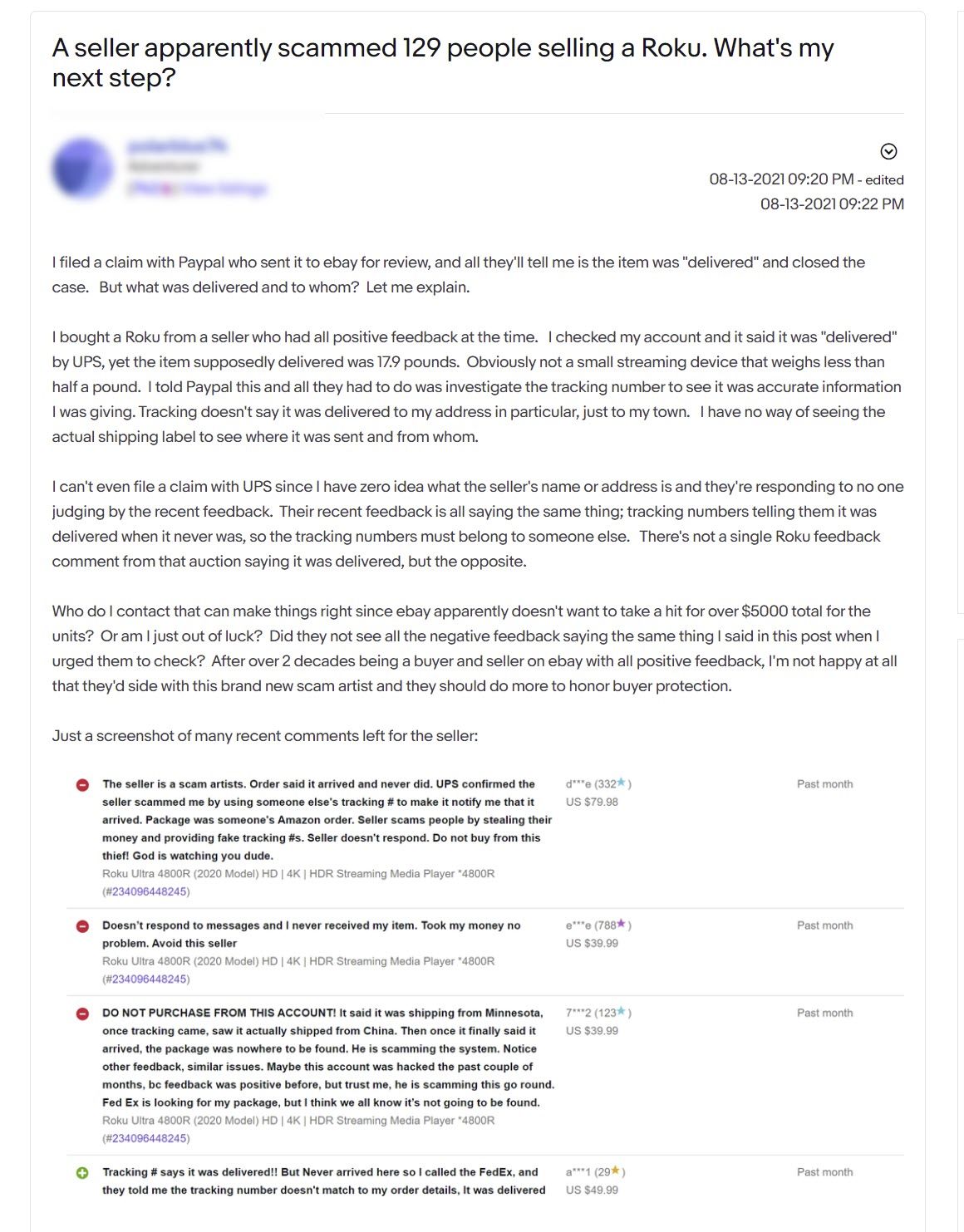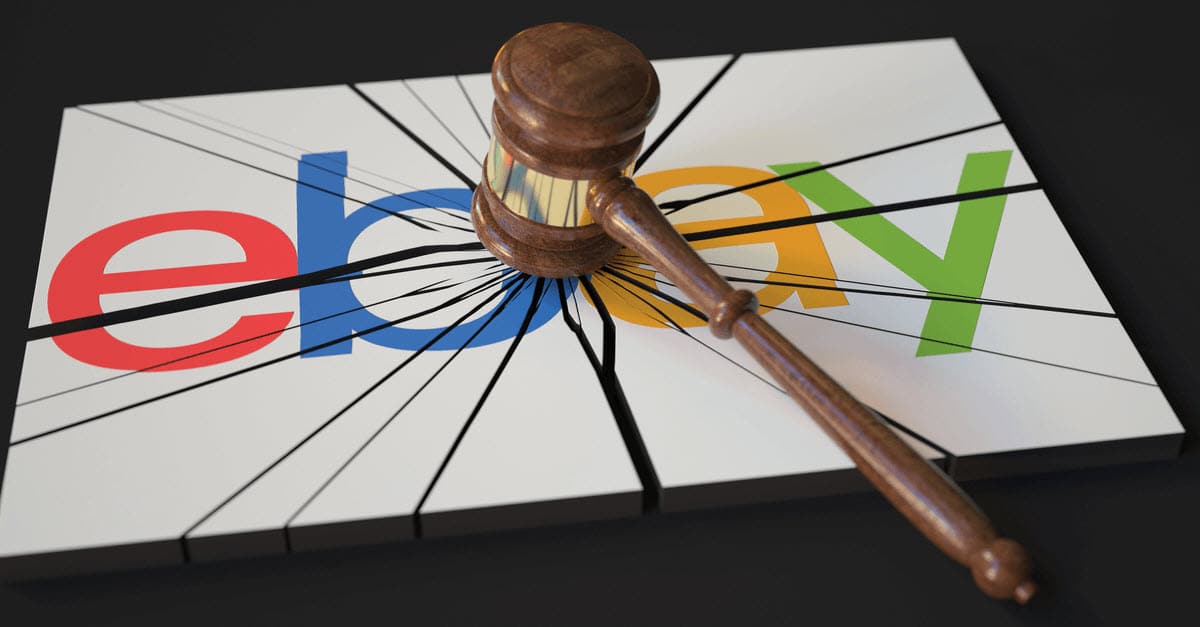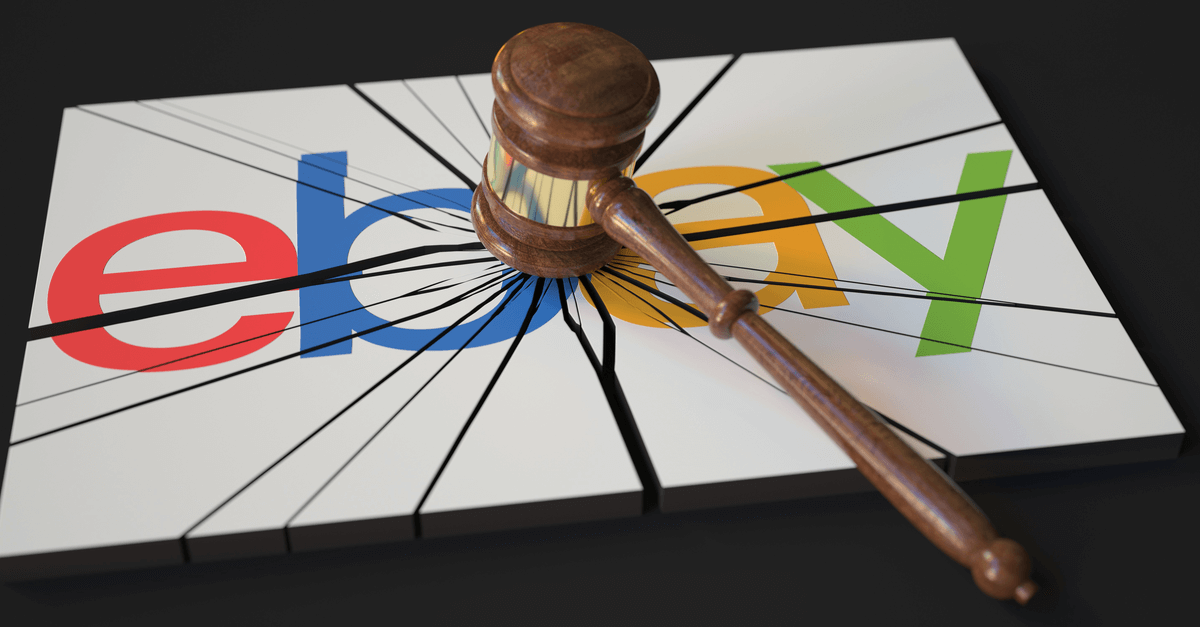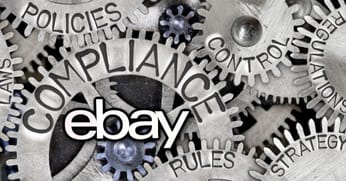eBay Same Zip Code Tracking Scams
Browsing through the eBay community the other day, I was reminded that one of the longest running types of scams on eBay is still very much alive and well.


Long time members will tell you "same zip code" tracking fraud has been around almost as long as the marketplace has existed. In the early days of eBay, it most often affected buyers like in the example above, but once the floodgate was opened, bad actors quickly figured out how to use it against sellers too.
When it comes to claims and disputes involving delivery of a package, for items less than $750, eBay's policies and dispute resolution processes look at one thing and one thing only - is there a tracking scan that shows delivery to the correct zip code?
Whether they send a piece of paper, a cheap item from Amazon, or use more nefarious means like hacking and scrapping to gain access to legitimate tracking numbers, all an unethical seller needs is a tracking number delivered to any address in the buyer's zip code and eBay will close an Item Not Received case in their favor.
In an ironic twist, affected buyers would likely be better protected if they instead used the "Not As Described" dispute reason - the dishonest seller would be forced to provide a refund or a return label, at which point the buyer could send back a rock in a box and likely get their money back.
To be clear, I'm not advocating doing such a thing as of course that would violate other policies and be considered abusive buyer behavior by eBay, but it's particularly frustrating that in this situation, buyers who select the most honest and logical reason for a dispute often receive less protection than they would if they were less honest.
As a seller, I've seen this same scam play out with returns as well. While working for a previous employer, I dealt with a particularly tricky repeat "same zip code" scammer. This person used guest checkout to circumvent our blocked buyer list to make purchases, filed false Not As Described claims, and then provided eBay with fake tracking numbers to our zip code for the return shipments to force a refund without ever actually returning the items he purchased.
This scammer hit us about 6 times over the course of 6 or 7 months. eBay would force the refund based on the falsified tracking information, I'd jump through hoops to get documentation from UPS or USPS stating it wasn't delivered to our address and then fight with customer service on the appeal.
Eventually eBay did issue "courtesy credits" to us as the seller for the amount that had been fraudulently refunded, but I suspect that was mostly because I was very vocal in the eBay community about the issue and it was a case of the squeaky wheel getting the grease, not just eBay deciding on their own to do the right thing. They never took any action against the scammer buyer - eventually he gave up after we started to catch and cancel the orders.
While the scammer used different guest accounts each time, the address on the orders was the same - the only thing different was they switched a few letters around in the name.
I can't disclose the actual name and address, but just to give an example of how obvious the connection was, the orders looked something like this:
John Doe 123 Main St, Anytown CA 99999
Jhon Deo 123 Main St, Anytown CA 99999
Doe Jon 123 Main St, Anytown CA 99999
It should have been very easy for eBay Trust & Safety to connect the dots, realize it was the same address/same person each time and simply block any new accounts or guest checkouts from this address.
When I asked Trust & Safety why they didn't do that, I was given the excuse that "these days scammers use VPNs and other methods to hide their identities, so it's really difficult to connect accounts" - which of course didn't address the fact that the physical street address on every single order was exactly the same.
What More Can eBay Do To Stop Same Zip Code Fraud?
eBay's typical response to both buyers and sellers who are victims of this fraud is to advise them to file fraud complaints with their local postal authority and/or police as well as requiring the victim to get a signed letter from the carrier stating the address on the package wasn't theirs.
Why does eBay allow this kind of fraud to continue and why do they put the burden of dealing with this crime completely on the victims?
eBay can and should dedicate resources toward developing a solution for this problem. Obviously the carriers have full address data available internally for these packages, since victims are required to get a letter from the carrier confirming the package wasn't sent to their address.
How hard would it be to create an app or portal that can connect to the carriers via API, compare the address eBay has on file for the shipment (either to the buyer or a return to the seller), and simply give Trust & Safety a yes or now response as to whether they match?
Obviously there are personal data and privacy regulations that would have to be considered, but there's no good reason a 26 year old multi-billion dollar tech company couldn't come up with a solution to fit the bill, if they were motivated to do so.
It was revealed at eBay Open in 2019 that eBay is the second largest USPS customer. In addition to getting what I'm sure are some fantastic discounted postage rates, you would think that might put eBay in a position to partner with USPS on a "tech led reimagination" initiative to streamline the process for Trust & Safety to deal with this kind of fraud without making users jump through hoops.
Any such initiative could then be expanded to include other carriers as well. From there Trust & Safety could also build a database that would allow them to track and connect instances of this type of fraudulent or abusive behavior and take appropriate action to protect users from future fraud.
In my final thoughts on the recent eBay Open Online event, I noted that despite CEO Jamie Iannone and SVP & GM, North America Jordan Sweetnam promising sellers they were listening and working to address seller concerns, they almost completely left out one of the biggest business impacting concerns many sellers have - lack of protections from various forms of scams and fraud.
It seems to me that addressing decades long fraudulent abuses of eBay's systems and policies would be one really good way to "Become the partner of choice for sellers and cultivate lifelong trusted buyer relationships."















